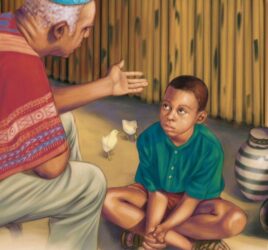
The Continuous Quest For Authentic Community Within The International Church
There has never been a greater challenge within the international church than to be a genuinely united community. In an increasingly polarized world, divided along ethnic divisions, economic disparities, political affiliations, ethical values and other ideologies, we are called to be “one body” (Eph. 4:1).
One of the amazing hallmarks of the early church was its unity, so clearly described at the end of Acts Chapter 2. Later on, Paul expounds even further upon this unity in saying that no distinction should exist between Jew and Greek (ethnic), free and slave (socio-economic) or male and female (gender) (Gal. 3:28).
What does that look like today practically?
I am always humbled to see so the diversity among us as we come together as a congregation. This is typical for any international church but the question is whether we are truly a united community? Have all biases and prejudices been eliminated by God’s Spirit working within us? There has been no greater time for us to show how Christ can make the divided united.
What are some of the things we can do to cultivate such a united community?
- Model it from the front. I believe God first needs to do a deep work in each of us as leaders with regards to our own prejudices. Coming from South Africa, I know all too well how entrenched racial and ethnic biases can be. We must continuously ask ourselves in God’s presence, whether we truly value each ethnic group as equal before God and as equals in the life of our congregation? The same goes for socio economic status. Do I value those who seemingly give more just as much as those who seemingly give less, or do I show some kind of favoritism?
- Never stop addressing divisions. God’s word is paramount in penetrating our hearts, minds and souls when it comes to these challenges (Hebr. 4:12). We never should assume that because people are comfortable attending a church meeting together with people from different backgrounds, that there are no prejudices. Being together does not mean we are one. Sharing God’s vision of a united church around Christ should be something that we not only preach about continuously, but it should be often discussed among our leadership teams.
- Be careful about picking sides. It is so easy to pick a side in any conflict or division. I believe that it is key for us to always remain “neutral” instead of using our own personal social media accounts, conversations with members or God forbid, the pulpit, to favor one political party, ethic group, cause, or opinion. Our God is an inclusive God, making the sun shine on the evil and the good. (Matthew 5:45 KJV)
- Create ample time for informal gatherings and teamwork. People get to know each other in the trenches and whether it is in a small group, a game night or a church workday, true community is created by people spending time with one another and getting to know one another. Good things happen when people spend more time drinking coffee and eating donuts than in the service.
- Be intentional about reaching out to the marginalized. I believe as leaders we are to continually evaluate the scope of the diversity within our congregation. Who are excluded that need to be included? Who are the pockets of expats/internationals that we are not reaching? Having the mindset of leaving the 99 for the sake of the 1 is not just about the one that is lost without Christ, but indeed also about the 1 who has been stigmatized and isolated by the other sheep.
- Be willing to have conversations with those who think differently. My most enriching conversations have been with those who think differently than me. Whether it be about alternative spiritual views, church tradition or gender issues, we always need to be ready to listen. Doing so will enable us to keep on building relationship “across the isle” with those who are different but for whom Christ also died.
Regional Coordinator for the Americas




Great paper sir. We are all victims of our own perceptions and we should constantly be willing to have those perceptions modified in community with others.